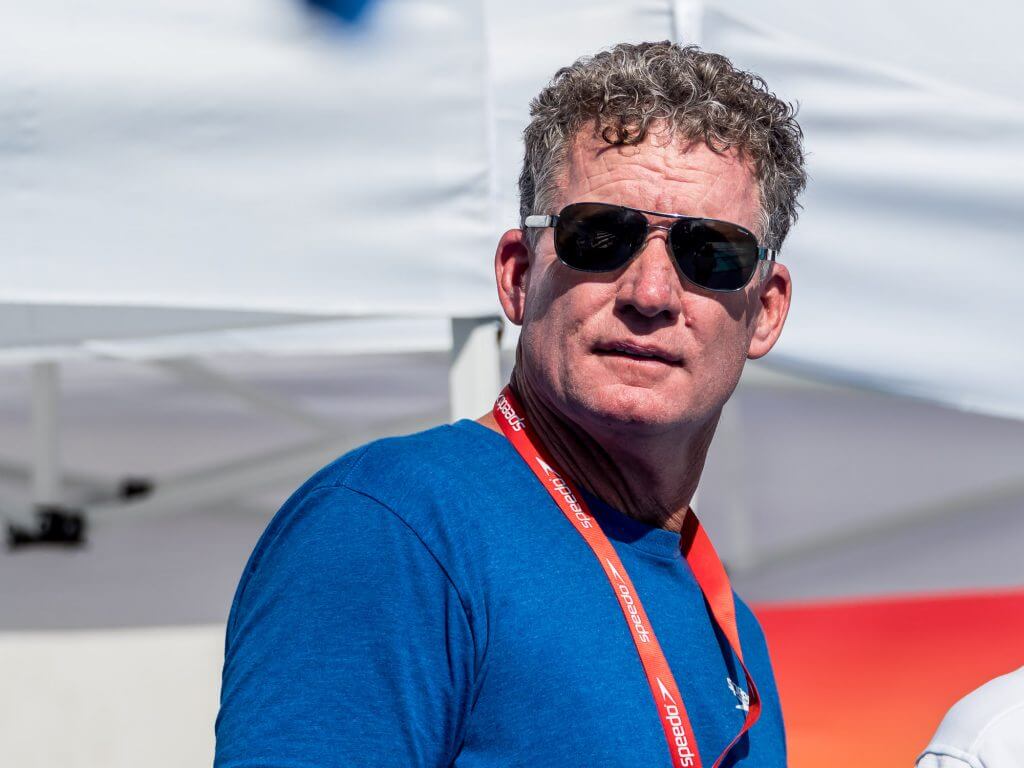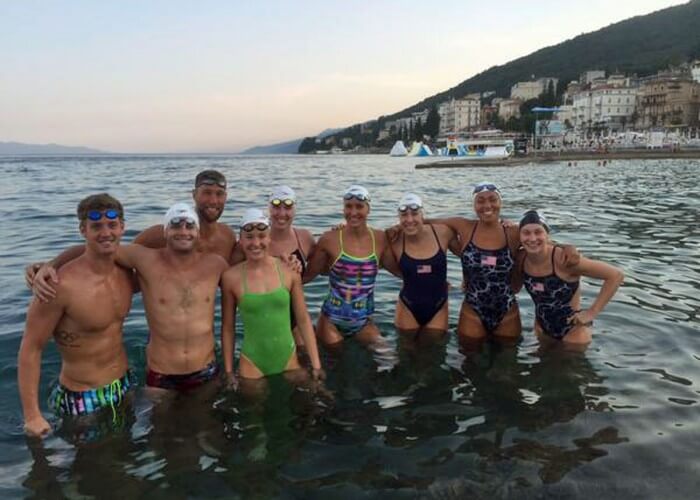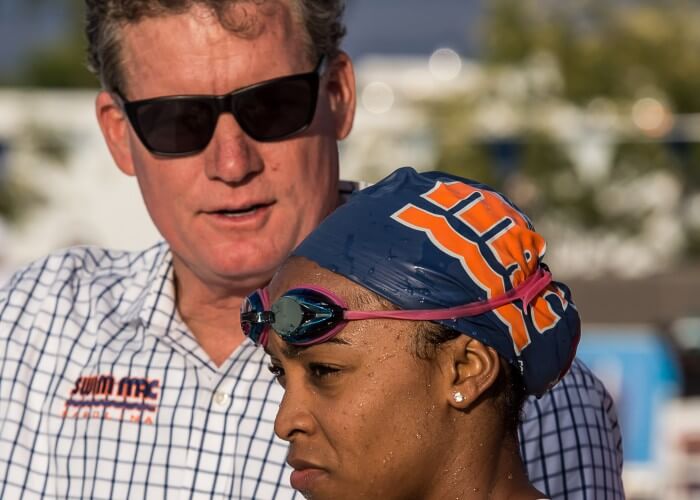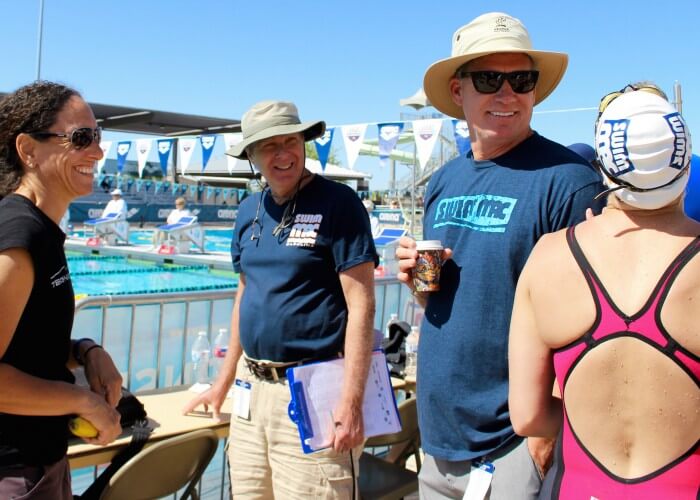David Marsh’s Philosophy on Coaching Female Athletes

By Devin Javens, Swimming World College Intern.
The coach-athlete relationship is crucial and can affect the performance of a swimmer. To be a great coach, you must be able to establish a great relationship with all of your athletes. This is much more easily said than done.
It’s easy to assume that swimmers of all genders are alike and should be treated the same. Yes – each swimmer endures similar conditions of grueling practices, aching muscles, and a hunger for success. However, could it possible that men and women should be coached differently? For a coach to connect with each athlete of all genders, it could be possible that they must cater their approach differently for each individual.
But how is this done?

Photo Courtesy: David Marsh/Twitter
David Marsh – head coach of Team Elite Aquatics, UC San Diego Swimming, and the 2016 Olympic Women’s Swim Team – is famous for his tight-knit team relationships and exceptional advocacy for the needs of each of his swimmers. He says his coaching philosophy revolves around focusing on the success of his individual athletes rather than his own. It is this very philosophy that has gotten him such a successful track record with many of his swimmers. How does he do it? By taking note of what drives his swimmers, and equally, what breaks them.
Marsh learned early in his career that the focus on relationships rather than outcome provided more successful results with his female swimmers. During his time as head coach of Auburn’s men’s and women’s swim team, the women’s team had a chance at a national title after a significant lead following the first day of the NCAA competition. The Auburn coaches created a mock banner which resembled the one the team would be given had they become national champions. However, the meet took a turn for the worse following the banner’s unveiling. Citing this incident, Marsh said: “We had projected an outcome, making it more about results than relationships. It was ridiculous.”

Photo Courtesy: Peter H. Bick
Throughout his many years of coaching, Marsh has noticed significant trends in his male athletes versus his female athletes. He says that many of his female athletes have benefited from more one-on-one time with him, as this has created a relationship based off of trust and promoted a sense of personal interest. The importance of conversation between Marsh and his female athletes is huge and shows his interest in the individual, possibly giving the athletes a sense a visibility on a team full of other talented swimmers.
Olympian Katie Meili has spoken about her relationship with Coach Marsh, saying that his coaching philosophy has pushed for her to be her own advocate in the pool. She added, “When I would come to practice as first, I’d say ‘What am I going to work on today?’ And David would say, ‘I don’t know. What do you think you need to work on?'” She explained that Marsh’s practices were catered the needs of each athlete. Through conversation, Marsh and Meili were able to determine what she needed to work on most.
Marsh also notes that his personal relationships with a number of his female athletes is prominent on the pool deck, reflecting on moments during the Rio Olympics when a number of his female athletes have embraced him after winning an Olympic medal. The appreciation is mutual – these female athletes recognize his hard work just as much as he does theirs.

Photo Courtesy: Taylor Brien
The relationship between a female swimmer and her coach is essential for success. As Coach Marsh says, “If they don’t trust you, you can’t motivate them.” Having an individual relationship shows the athlete that a coach is completely invested in them, communicating that the basis of their relationship isn’t focused on a successful outcome. By catering your coaching style to each individual athlete and focusing on the needs of each individual, trust is established and a successful outcome is more probable.
All commentaries and research are completed by the author and do not necessarily reflect the views of Swimming World Magazine nor its staff.




Kaitlin
Ahmed Motawaa
You are the best Scott Paulson!
Naomi Harris ?
Jennifer Strine
Focus on the person not the outcomes, yep! Well done
Refreshing perspective. Not every athlete is the same.
Well said & well done
Great article that identifies the unique mental training strategies pertaining to top women athletes or any athletes unique mental needs. This coach’s approach is well known in the industry and not a forced and strange topic at all. A coach being able to identify and use Sport psychology to the athletes’ advantage and unique and mental needs is key. Great Subject.
It has been researched that men have unique mental and emotional needs that can be keyed in also by both men and women coaches also. Great article again that not all athletes are the same and a great coach will adjust accordingly.
Emily Taylor a good read